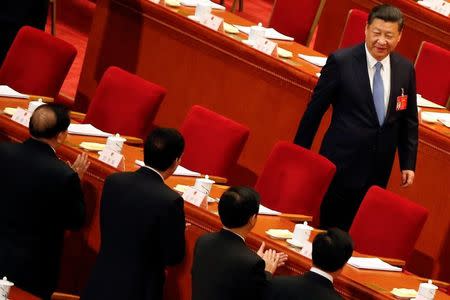No hiding place: China releases street names of fugitives holed up abroad

BEIJING (Reuters) - China's top anti-graft watchdog on Thursday released new information on 22 fugitives who are hiding out abroad down to the street names where they may live, as China ramps up pressure on corruption suspects who have fled overseas. Chinese President Xi Jinping has overseen a multi-year war on graft, promising to quash deep-seated corruption at all levels of the party until officials cannot, dare not and don't want to be corrupt. The Central Commission for Discipline Inspection (CCDI) took the fight overseas in 2015 by releasing a list of 100 most wanted fugitives which the organisation has since sought to return through operations called "fox hunt" and "sky net". Beijing has struggled to enlist Western countries in its efforts to return corruption suspects, with many proving reluctant to sign an extradition treaty with China, pointing to its poor rights record and opaque criminal prosecution process. CCDI released on its website further images, suspected crimes, addresses and locations for 22 fugitives in the United Kingdom, the United States, Canada, New Zealand, Australia and Saint Kitts and Nevis. The information marks the most detailed personal data released on overseas suspects to date, CCDI official Gao Bo said, according to the official Xinhua news agency. A statement by the CCDI also released on its website said that the current information came from tip-offs from members of the public and encouraged Chinese abroad and foreigners to inform on the fugitives through an online platform so that they had "no place to hide". "We urge specific countries not to pursue their own economic interests by issuing passports and visas through investment immigration schemes when applicants are suspected of corruption," the statement said. "Passports and visas that have already been issued should be revoked as soon as possible." (Reporting by Christian Shepherd)

